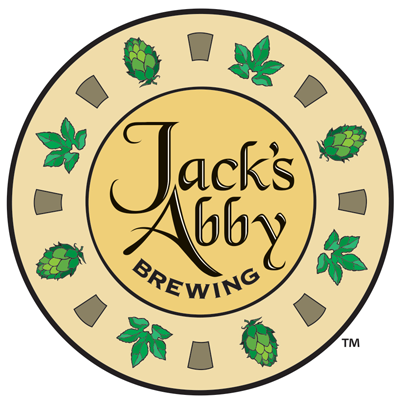Boston Brewer Panel: On Homebrew Tips and Lessons Learned the Hard Way
In this post--the third in a five-part series--you’ll hear from brewers at Jack's Abby Brewing, Clown Shoes, Pretty Things Beer & Ale Project, Nightshift Brewing, Idle Hands Craft Ales, Enlightenment Ales, and Aeronaut Brewing Co. on their top homebrewing tips, lessons brewers tend to learn the hard way, and what keeps them awake at night.
In case you missed the previous posts in this series, you can find them here:
- Boston Brewer Panel: On Evolving Tastes and the Creative Process
- Boston Brewer Panel: On the Rise of Women and Beards in Craft Beer

What's the one tip you give most brewers to brew better beer?
 Bryan Doran
Bryan Doran
Test Batch Brewer at Clown Shoes Beer
Ipswich, MA
@clownshoesbeer
Sanitation and cleanliness is key to success. The best recipe and the best ingredients in the world won’t matter if you have an infected batch or an off-flavor from something being dirty.
 Jack Hendler
Jack Hendler
Brewer at Jack's Abby Brewing
Framingham, MA
@JacksAbby
Don't try to brew lagers. :)
 Adrian Beck-Oliver
Adrian Beck-Oliver
Brewer at Aeronaut Brewing Co.
Somerville, MA
@AeronautBrewing
 Dann Paquette
Dann Paquette
Brewer at Pretty Things Beer & Ale Project
Somerville, MA
@PrettyBeer
It's more than just one tip but I don't know where to start. It helps to have specialized equipment in a brewery and I don't like to be in the dark as to what I'm working with. I sense that homebrewing benefits from doing it very often and having an overall confidence about what you're doing and in the results.
 Rob Burns
Rob Burns
Co-Founder at Nightshift Brewing
Everett, MA
@NightShiftBeer
The biggest thing is fermentation. You need to make sure you are pitching healthy yeast, the right cell count, and fermenting at the correct temperatures. That will make a world of difference.
Ben Howe
Founder and Head Brewer at Idle Hands Craft Ales/Enlightenment Ales
Everett, MA
@idlehandsbeer/@Alelightenment
Take notes. Record everything you do with every batch so you can look back and compare. Start with very simple recipes and master those before doing something complicated. And for god's sake, actually use the hydrometer! There's a reason it comes with your homebrew kit!
What’s the one lesson you think most homebrewers learn the hard way? And how can they overcome it?
 Bryan Doran
Bryan Doran
Test Batch Brewer at Clown Shoes Beer
Ipswich, MA
@clownshoesbeer
Bad sanitation is something people seem to learn the hard way. Despite being told by just about everyone, it seems people need to experience a bad batch or two (or 100) before they realize the importance of basic cleaning and sanitation.

Jack Hendler
Brewer at Jack's Abby Brewing
Framingham, MA
@JacksAbby
Sanitation. Sanitation. Sanitation. On the surface is seems like an easy concept, but it's significantly harder to achieve even with experience and the proper tools. It takes a non-stop combative approach that's that doesn't easily fit into a fun part-time hobby.
 Adrian Beck-Oliver
Adrian Beck-Oliver
Brewer at Aeronaut Brewing Co.
Somerville, MA
@AeronautBrewing
Always watch your pot when you're approaching boil, and be quick to spray down excess foam. Boiling over on the stove in your rental apartment will result in hours of scrubbing and chipping off caramalized wort.
 Dann Paquette
Dann Paquette
Brewer at Pretty Things Beer & Ale Project
Somerville, MA
@PrettyBeer
 Rob Burns
Rob Burns
Co-Founder at Nightshift Brewing
Everett, MA
@NightShiftBeer
Bad batches of beer due to poor cleaning and sanitation. Beer is fragile and prone to all sorts of unwanted bacteria/wild yeasts. You really need to pay attention with how you clean and sanitize everything that comes into contact with the beer.

Ben Howe
Founder and Head Brewer at Idle Hands Craft Ales/Enlightenment Ales
Everett, MA
@idlehandsbeer/@Alelightenment
Sanitation: it's not a joke. Clean your equipment and then sanitize it!
As a brewer, what keeps you awake at night?
 Bryan Doran
Bryan Doran
Test Batch Brewer at Clown Shoes Beer
Ipswich, MA
@clownshoesbeer
I only brew test batches, which means I don’t have to worry about a lot of things a head brewer has to do. In brewing test batches, I worry about the base beer a lot. Consistency across the brews to make sure the variations in flavors are intended and a result of the test.

Jack Hendler
Brewer at Jack's Abby Brewing
Framingham, MA
@JacksAbby
Everything. There is an ever-evolving list of worries. Safety, staff training, QA/QC, scheduling, R&M. The list never ends.
 Adrian Beck-Oliver
Adrian Beck-Oliver
Brewer at Aeronaut Brewing Co.
Somerville, MA
@AeronautBrewing
Brew scheduling and yeast management. At any given time we can have 3 or 4 strains active and in a brewery with only 7 fermentors and several dry hopped beers, it can be a juggling act to make sure tanks are emptying on time to get a new beer in with a yeast strain you want to keep active, coupled with trying to keep varied lineup across our 8 draft lines.
 Dann Paquette
Dann Paquette
Brewer at Pretty Things Beer & Ale Project
Somerville, MA
@PrettyBeer
Been doing this a while so many worries I had a decade ago no longer bother me. Sometimes I can't remember if I set the temp on a tank or not. Living 90 minutes from my brewery doesn't help that thought go away.
 Rob Burns
Rob Burns
Co-Founder at Nightshift Brewing
Everett, MA
@NightShiftBeer
Everything. I used to sleep like a rock when I had a "normal" job. Now I am restless constantly. Business is booming and we can't keep up with demand but there is still so much that goes into running a brewery to worry about. The list is endless from hop contracting, to budgeting, to constant maintenance on all the equipment, to construction management, to employee and hiring fun, to future growth plans and strategies, and lately snow. That's all before you even get to brewing beer. Then you have to worry about are your cleaning processes flawless, wort quality, yeast health, O2 pickup while transferring and packaging beer, shelf stability, cross-contamination between sour and non-sour beers, is the beer high quality, is this batch world class. For the most part, things go smoothly but every week there are some bumps along the way that cause you to stay up at night.

Ben Howe
Founder and Head Brewer at Idle Hands Craft Ales/Enlightenment Ales
Everett, MA
@idlehandsbeer/@Alelightenment
Honestly? The thought of the beer I sent out to bars and stores not being excellent. I worry all the time that the beer I'm making is not up to the standards I have in my head. More practically, though, paranoid fears of tanks that are over pressurizing, or fermentations that are stuck. Things like that.
Make sure you're on the mailing list for the next post in the brewer panel series by signing up here.
